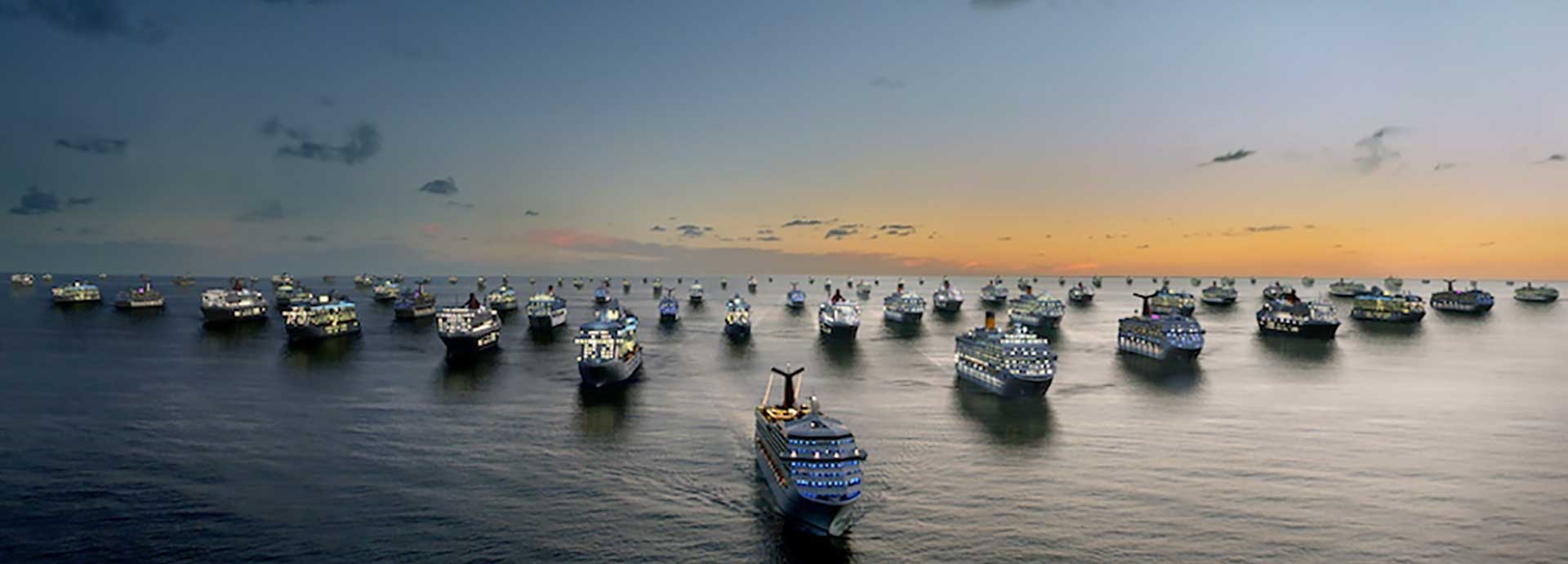

Performance-based agreement with Carnival Corporation's fleet
A comprehensive, 12-year performance-based agreement has been signed between Wärtsilä and Carnival Corporation. The agreement covers the safety, reliability and fuel consumption of all the company’s cruise ships covered by the agreement.
Challenge
- Ensuring safe, reliable and efficient customer operations
Solution
- 12-year performance-based agreement for 79 of Carnival’s vessels
Benefit
- Savings in fuel costs (tens of millions of dollars per year)
- Increased safety and reliability
Carnival Corporation & plc, the world’s largest leisure travel company, was founded in 1972 and has its headquarters in Miami, Florida, USA. Carnival operates a fleet of 102 ships, visiting more than 700 ports around the world. The company
employs over 120,000 people worldwide and its 10 cruise line brands attract nearly 11.5 million guests annually.
Why optimise ship lifecycle efficiency?
One of Carnival’s key focus areas is fuel consumption improvement. Their large fleet of 102 ships means that even the smallest improvements in fuel efficiency add up to big savings. For example, a 1% improvement of an annual one-billion-dollar fuel bill represents a massive ten million dollars in savings, states Mr. Burke. Another key focus is to avoid service interruptions. Everything needs to be up and running at a high level. If maintenance interruptions can be minimised and uptimes increased, along with fuel savings, the benefit will go to both Carnival and their passengers.
In January 2017, the performancebased agreement was signed to strengthen the partnership between Wärtsilä and Carnival. The agreement includes Wärtsilä’s Dynamic Maintenance Planning (DMP) and Condition Based Maintenance
(CBM). Simplified, Wärtsilä will take care of engine maintenance and monitoring, scheduled or not. Wärtsilä will also have the responsibility to safely extend overhaul intervals where possible, as they will be closely monitoring
the ship’s engines.
CBM and DMP both receive data from individual engines, which is analysed by Wärtsilä’s specialists. As such, real-time optimisation of the equipment is enabled to predict operational and
maintenance demands. This means that data will be transmitted ashore every 30 seconds, and we’ll have direct around-theclock feedback on any actions taken. For example, this allows us to see how changes in components improves our fuel
consumption, explains Mr. Burke.
With approximately 400 Wärtsilä engines covered under the agreement, even the smallest improvements in vessel fuel consumption add up to significant annual savings in fleet operational
costs. With Wärtsilä maintaining the engines under our agreement and ensuring a high level of safety and reliability, we can concentrate on our core priority – providing great cruise vacations for our more than 11 million annual
guests. Best of all, it also delivers superior fuel efficiency, says Mr. Burke.
Predictability and incentives
Carnival Corporation accounts for approximately 50% of the cruise industry, which means a huge engine volume. Wärtsilä engines can be found in 79 ships of their fleet. The long-term performance-based agreement provides predictability of costs and incentives for both companies as remuneration is based on how the equipment performs. Carnival Corporation will benefit from the predictability of having an expert overseeing maintenance, which will allow their staff to put more time and energy into the business side of things. For Wärtsilä, the predictability makes it possible to put more effort into R&D, manufacturing and other functions to create products and solutions that are even better and more efficient.
If Wärtsilä does well, they get paid more, and our pain is Wärtsilä’s pain, as they pay a penalty if our operational need is impacted, says Mr. Burke. Burke clarifies, If we buy an engine for a ship, Wärtsilä has been more than happy to sell us parts and services, but this deal gives Wärtsilä an incentive to keep everything up and running at a high level. By minimising spare parts and services to increase uptime and fuel savings, both companies will ultimately benefit. And fewer service interruptions make for happy cruise passengers, too.
Long-term partnership
The agreement will generate a data treasure that does not exist in the world today. From Burke’s perspective, this agreement unlocks Wärtsilä’s knowledge and experience for Carnival Corporation’s
benefit and lays the groundwork for future opportunities for the two companies to work together.
Our Carnival Corporation brands sail to nearly 750 ports around the world, and there are not many suppliers that could support our ships
in so many locations, Mr. Burke points out. This 12-year contract will keep us together for a long time if all goes well. We might have to amend the contract, since there may be things we haven’t thought of, and the collaboration may lead to
some byproducts or spin-offs from the main deal. If we can make this contract work well, there will be many more opportunities. However, the continuous monitoring and analysis of engine efficiency and fuel consumption will lead to savings in fuel
costs measured in tens of millions of dollars per year, concludes Bill Burke.
As the cruise industry is continuing to grow rapidly, it has become more and more critical for us to ensure that the operations of our fleet are safe, reliable and efficient. This is good for both our business and the market.



